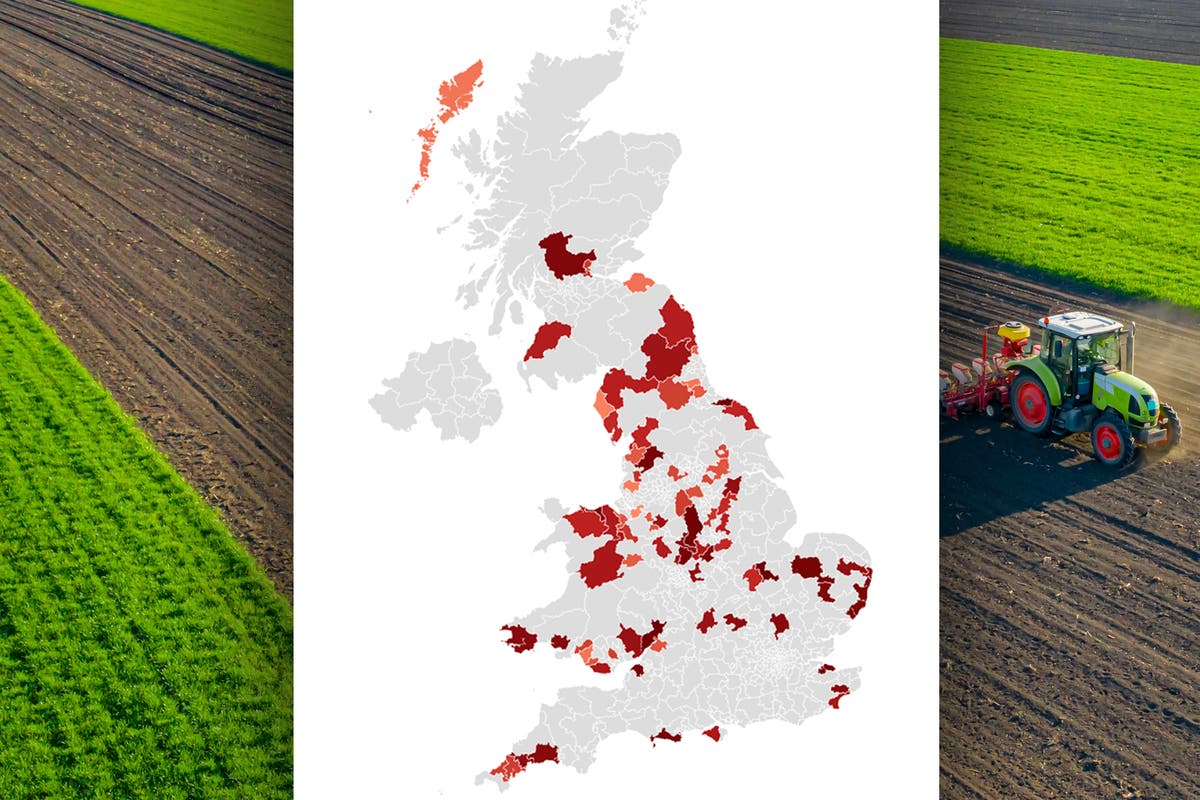Your support helps us to tell the story
From reproductive rights to climate change to Big Tech, The Independent is on the ground when the story is developing. Whether it’s investigating the financials of Elon Musk’s pro-Trump PAC or producing our latest documentary, ‘The A Word’, which shines a light on the American women fighting for reproductive rights, we know how important it is to parse out the facts from the messaging.
At such a critical moment in US history, we need reporters on the ground. Your donation allows us to keep sending journalists to speak to both sides of the story.
The Independent is trusted by Americans across the entire political spectrum. And unlike many other quality news outlets, we choose not to lock Americans out of our reporting and analysis with paywalls. We believe quality journalism should be available to everyone, paid for by those who can afford it.
Your support makes all the difference.
The government’s controversial decision to extend inheritance tax to farm properties could put a fifth of Labour‘s seats at risk, analysis from the Independent reveals.
At least 81 of Labour’s seats in England, Scotland and Wales are in areas with a significant rural population, where more constituents are likely to be affected by farm taxes, which have prompted fury.
In 54 of these constituencies, Labour won by less than 15 per cent, with the Conservatives, Reform or the SNP hot on their heels. The so-called tractor tax has been seized upon by the rural community as an example of Labour betrayal.
The Tories are in prime position to take advantage of Labour’s declining popularity among rural voters, with the party likely eyeing up the chance to claw back 48 seats where they were less than 15 per cent behind Labour in the recent election.
The rural/urban classification was drawn up by Defra in 2011. For Wales, areas with over 200 farms are included. There is no rural/urban classification data available for Northern Ireland.
Where is Labour at risk?
On Tuesday more than 10,000 farmers protested against the tax changes, which mean that from April next year inherited agricultural assets worth more than £1 million, which were previously exempt, will be liable to the tax at 20 per cent – half the usual rate.
Leaders from major parties have challenged the government’s decision, with Kemi Badenoch calling the tax “cruel” and and Ed Davey saying it “does not make sense”.
The rural vote is a point of insecurity for Labour; in fact, the vast majority of these seats were formerly held by the Conservatives until this year.
It is safe to say that Labour cannot take these votes for granted. Meanwhile, the Conservatives are waiting in the wings.
In Wednesday’s PMQs, Tory MPs took the opportunity to attack Angela Rayner on the policy decision, with Saqib Bhatti asking:
“Why has this Labour Government declared war on British farmers?”
The Conservatives lost the Forest of Dean constituency by just 278 votes at the election. There are 751 farms (agricultural holdings) registered in this constituency alone, according to 2021 figures from Defra.
MP Matt Bishop told the Independent that he wants to “reassure my constituents that my focus on farming and rural issues remains unwavering”.
The Derbyshire Dales has one of the highest numbers of farms in the UK, with 1,275 registered in the constituency. Labour won the seat by just 350 votes, with the Tories close behind.
Some Labour MPs in these at-risk seats have already started to question their party’s policy decision, following pressure mounting from the farmers protests.
The Labour MP for South Norfolk, Terry Jermy, called for reassurance “on the scale of the impact and confirmation that the figures are accurate”.
Mr Jermy is facing pressure from constituents in South Norfolk, a predominantly rural constituency with 408 farm holdings, where the Tories came in just 5.7 per cent behind Labour.

Meanwhile in Wales, hundreds of farmers joined the protests outside Parliament and at home.
Local MP for Montgomeryshire and Glyndŵr Steve Witherden questioned the Treasury’s modelling of the policy and suggested that future changes may be necessary.
There are around 4,766 farms in the Powys area, which includes Mr Witherden’s seat, according to 2017 figures from the Welsh government.
Reform came 3,815 votes (8.8 per cent) behind Labour in Montgomeryshire and Glyndŵr, which was only won from the Conservatives this year.
In Llanelli on the South West coast, Reform were just 1,504 votes behind Labour. Its position within Carmarthenshire, home to around 4,000 farms, could pose a threat in light of the farmers’ protests.
Reform MPs Nigel Farage, Richard Tice, and Lee Anderson joined the picket line on Tuesday and have been vocal against the IHT changes. Their constituencies have approximately 760 agricultural holdings between them.
